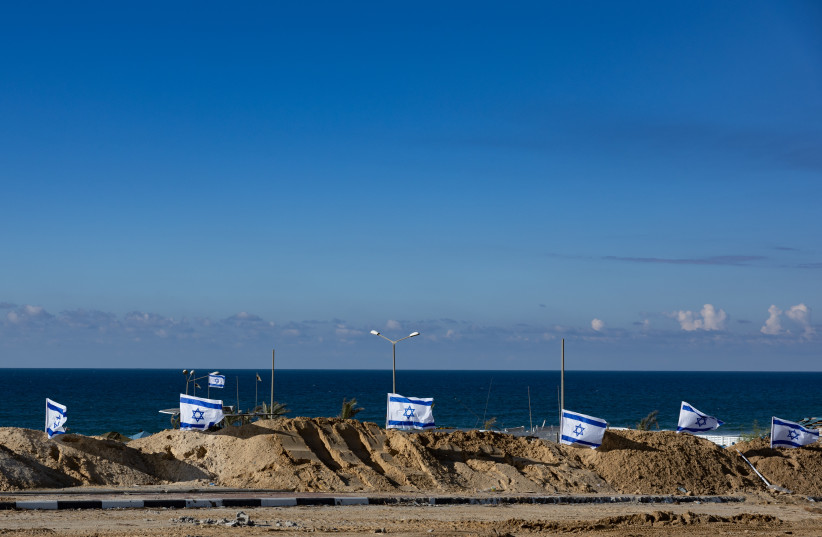Israel must safeguard Palestinian civilians as its “number one priority” even as it defends itself against Hamas, US Secretary of State Antony Blinken said as he called for a “flood the zone” approach to humanitarian aid in Gaza.
“Protecting civilians is a priority and not a secondary consideration,” Blinken told reporters in Washington.
“That has to be job number one, even as they do what is necessary to defend the country and to deal with the threat. posed by Hamas.”
He spoke on Wednesday as he worked to place a US-built temporary pier off the coast of Gaza and pressed for a deal for the release of 134 hostages.

Earlier in the day he met with European Union foreign policy chief Joseph Borrell and held a video conference on the maritime pier project with officials from the EU, the UN, Qatar, Cyprus, and the United Kingdom.
“We are also of course working with Israel on this,” he said.
The maritime corridor will allow the distribution of up to two million meals every single day, Blinken said but added that the pier project would take time and was not a substrate for other avenues to bring aid into the enclave.
The US wants to see goods enter Gaza by land, air, and sea but believes that land crossings are the most efficient path for goods to flow.
The United Nations has warned that half a million people in Gaza are at risk of starvation.
Blinken said that the absence of food has encouraged lawlessness in Gaza such as looting and criminal gangs. Once there is a sustainable supply of food, lotting and black market activity around basic goods will disappear, he said.
The secretary of state vacillated between assuring reporters that Israel was allowing food into Gaza and chastising it for not doing enough.
'Gap between intent and result'
“We see a gap between the intent and the result,” Blinken said, explaining that the US is determined to close that gap.
“Food is getting in, but it's insufficient,” he stated.
Israel has to improve options for land crossings into Gaza, expand the list of items that can enter the enclave, and ensure a better deconfliction mechanism so that the goods can be properly distributed, Blinken said.
He rejected suggestions by reporters that the US should refrain from sending arms to Israel. The US has an “enduring commitment” to make sure that Israel has what it needs to defend itself, Blinken said, adding that this stance “is not going to go away.”
He stressed, however, that Israel must present the Biden administration to protect civilians should the IDF embark on a military operation in Rafah to destroy the last Hamas battalions.
The Biden administration must see “a plan that will get civilians out of harm's way” and ensure they have shelter and food, “if there's to be a military operation in Rafah,” Blinken said.
“We’ve not yet seen such a plan,” he added.
The situation of aid distribution would be eased, he said, if Hamas would accept the strong proposal on the table for a six-week pause to the war in exchange for a hostage deal.
“The question is, will Hamas take it? Does Hamas want to end the suffering that has provoked?
“We're intensely engaged every single day, almost every single hour with Qatar with Egypt, to see if we can get a ceasefire agreement that will get the hostages out, get more aid in, and create a pathway perhaps for a more lasting, secure solution.”
Blinken stressed that the “hostages remain front and center, on our minds and in our hearts.”
In Jerusalem, Prime Minister Benjamin Netanyahu met with his Dutch counterpart Mark Rutte, who made his fourth visit to Israel Wednesday since the start of the war.
Netanyahu spoke with Ruttee about the importance of a Rafah mission to the destruction of Hamas. They also spoke about the stagnant hostage talks, Israel’s opposition to unilateral Palestinian statehood recognition and the importance of humanitarian assistance.
